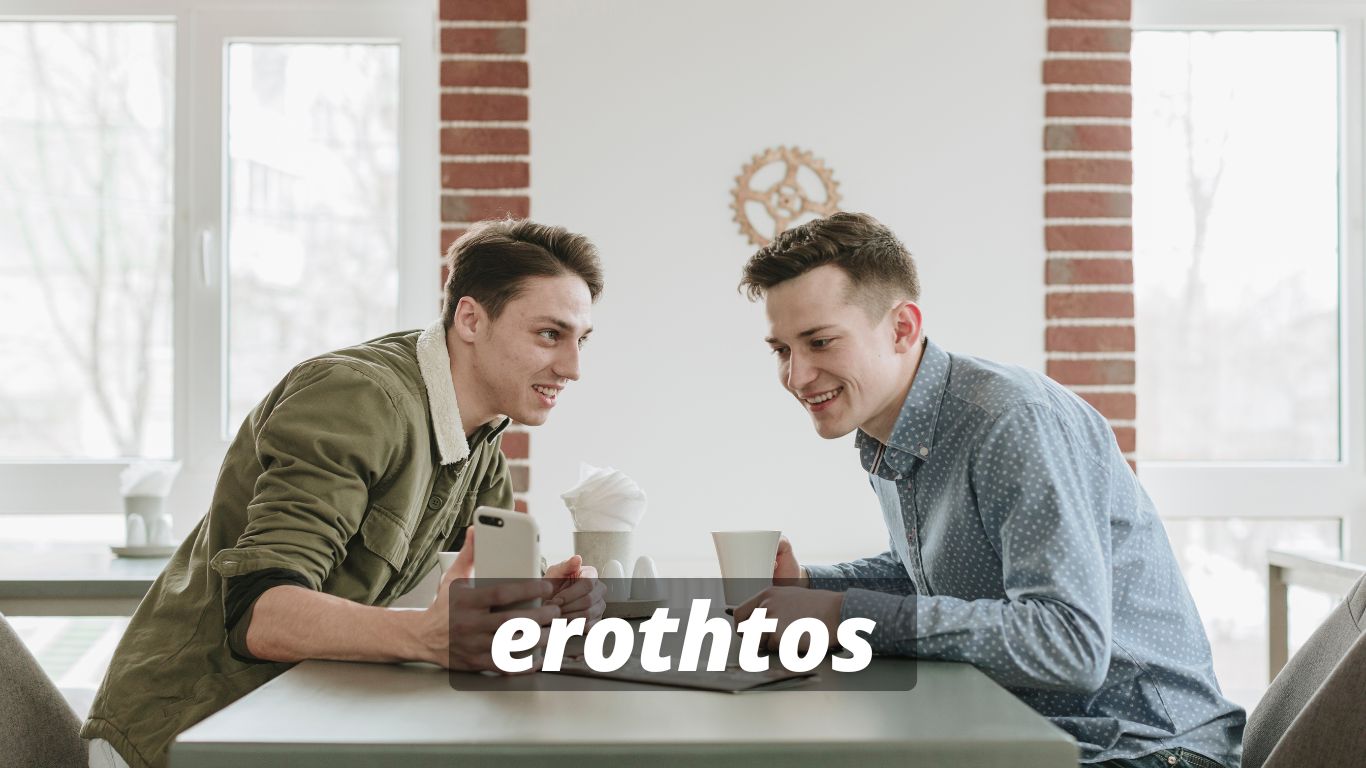Erothtos: Exploring Love and Connection Across Time

The term erothtos stands as a profound cornerstone in understanding human connection and love. Rooted in ancient Greek philosophy, erothtos is more than just an abstract concept; it is a lens through which the complexities of relationships, desire, and human bonding are explored. Its influence remains pervasive and enduring, whether applied to literature, philosophy, or everyday life.
Understanding erothtos requires delving into its origins, examining its cultural significance, and exploring its contemporary applications. By doing so, a richer appreciation of how this ancient idea continues to shape the human experience is achieved.
The Meaning of Erothtos
The essence of erothtos lies in its exploration of love, often interpreted as a profound emotional or spiritual connection. Unlike fleeting infatuations, it transcends surface-level attractions and seeks deeper meaning. This perspective resonates through historical contexts, philosophical discourses, and modern interpretations.
Ancient Greeks viewed erothtos as an integral part of life, encompassing various forms of affection. It was often used to express romantic longing, but it also embraced platonic and divine connections. Such a multifaceted understanding highlights the depth and versatility of this concept.
Origins in Greek Philosophy
The roots of erothtos are firmly planted in the fertile soil of Greek philosophy. Philosophers like Plato and Aristotle examined the idea extensively, linking it to themes of virtue, beauty, and the pursuit of truth. Plato’s dialogues, particularly The Symposium, provide one of the most profound explorations of love and its connection to the ideal world.
For Plato, erothtos was not merely a physical attraction; it was a ladder leading to higher truths. Starting with admiration for physical beauty, one could ascend to an appreciation of intellectual and spiritual ideals. This framework continues to inspire discussions about love and personal growth.
Erothtos in Literature
Literature across ages has been imbued with themes of erothtos, showcasing its universal appeal. From classical epics to modern novels, writers have used this concept to delve into the complexities of human emotion.
In Homer’s The Iliad and The Odyssey, themes of love and loyalty are tied to erothtos, illustrating its relevance in both personal and heroic contexts. Similarly, the works of Shakespeare and modern literary giants often incorporate elements of this ancient idea, bridging cultural and temporal divides.
Cultural Significance of Erothtos
The impact of erothtos on art, culture, and relationships is undeniable. In ancient Greece, it shaped rituals, poetry, and even social norms. The influence of these traditions persists, subtly shaping modern perceptions of love and connection.
From sculptures and paintings to contemporary films and songs, expressions of erothtos serve as a testament to its enduring relevance. By reflecting on this rich history, one gains insight into how deeply embedded this idea is in human culture.
Philosophical Implications of Erothtos
The philosophical dimensions of erothtos extend beyond romantic love, touching on questions of existence and the nature of happiness. Aristotle viewed it as a vital component of friendship and societal harmony, linking it to ethical living.
By considering the role of erothtos in fostering empathy and mutual understanding, a framework for cultivating healthier relationships is provided. These philosophical insights remain as relevant today as they were centuries ago.
Erothtos in Modern Psychology
Modern psychology often mirrors the themes of erothtos, emphasizing the importance of emotional bonds and meaningful connections. Concepts such as attachment theory and emotional intelligence align with this ancient idea, demonstrating its timeless relevance.
Exploring how these theories intersect with erothtos sheds light on strategies for enhancing personal growth and relationship satisfaction.
Applications in Contemporary Relationships
In today’s fast-paced world, the principles of erothtos offer a guide for navigating the complexities of relationships. Whether in romantic partnerships, friendships, or familial ties, its focus on genuine connection and mutual respect remains invaluable.
By embracing the values underlying erothtos, individuals can foster deeper, more fulfilling bonds. This approach also encourages a shift away from superficial interactions, promoting authenticity in human connections.
Challenges to Understanding Erothtos
Despite its enduring appeal, understanding erothtos is not without challenges. Cultural shifts and evolving societal norms have altered perceptions of love, sometimes obscuring the essence of this ancient concept.
By revisiting its origins and exploring its philosophical foundations, a clearer understanding of erothtos is achieved, ensuring its relevance for future generations.
The Spiritual Aspect of Erothtos
Beyond its emotional and intellectual dimensions, erothtos carries spiritual significance. In many traditions, it represents a longing for unity with the divine or the universe. This perspective adds a transcendent quality, making it a profound force in human experience.
Lessons from Erothtos for Personal Growth
Embracing the teachings of erothtos can lead to significant personal growth. By focusing on self-awareness, empathy, and the pursuit of meaningful connections, individuals can unlock a deeper sense of purpose and fulfillment.
Applying these principles in daily life fosters resilience, kindness, and a greater appreciation for the richness of human relationships.
Erothtos in Art and Music
Art and music have long been mediums for expressing the ideals of erothtos. From ancient Greek sculptures to contemporary songs, the beauty of this concept has inspired countless creative endeavors.
By examining these artistic expressions, one gains insight into how erothtos continues to influence human creativity and imagination.
Comparisons with Other Philosophical Ideas
The concept of erothtos can be compared to similar ideas in other philosophical traditions, such as the Indian notion of bhakti or the Chinese philosophy of ren. These comparisons reveal common themes of love, connection, and spiritual growth, highlighting the universality of these values.
Erothtos and Ethical Living
Living in alignment with the principles of erothtos encourages ethical behavior and mutual respect. By prioritizing kindness and understanding, a more harmonious and compassionate society is fostered.
Role in Education and Mentorship
The principles of erothtos also find relevance in education and mentorship. By emphasizing genuine care and mutual respect, educators and mentors can inspire deeper learning and personal development.
Historical Perspectives on Erothtos
Throughout history, the interpretation of erothtos has evolved, reflecting cultural and societal changes. By studying these shifts, a broader understanding of its impact is achieved, offering lessons for contemporary life.
Impact on Modern Relationships
The teachings of erothtos hold practical implications for modern relationships, encouraging honesty, empathy, and mutual growth. These values serve as a foundation for building strong, enduring connections.
Critiques and Misunderstandings of Erothtos
Despite its positive aspects, erothtos is sometimes misunderstood or misrepresented. Exploring these critiques provides a balanced view, enhancing appreciation for its true essence.
Future Relevance of Erothtos
As society continues to evolve, the relevance of erothtos is unlikely to diminish. Its focus on connection and understanding offers timeless lessons for navigating the complexities of human relationships.
FAQs
What does erothtos mean in Greek philosophy?
Erothtos represents the concept of love and connection, encompassing physical, emotional, intellectual, and spiritual bonds.How did Plato view erothtos?
Plato saw erothtos as a ladder to higher understanding, starting from physical attraction and ascending toward spiritual and intellectual ideals.Is erothtos limited to romantic love?
No, erothtos also includes platonic relationships, divine love, and broader human connections, making it a multifaceted concept.How is erothtos relevant today?
Erothtos provides insights into building meaningful relationships, promoting empathy, and fostering personal and societal harmony.What are examples of erothtos in art?
Classical sculptures, poetry, and contemporary music often reflect themes of erothtos, emphasizing love, beauty, and connection.How can the principles of erothtos improve relationships?
By encouraging empathy, respect, and authenticity, erothtos helps create deeper, more fulfilling connections in all types of relationships.










